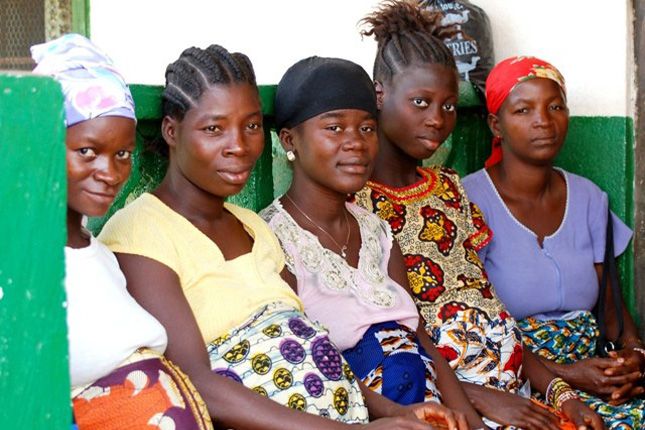-
On the Beat: Non-Communicable Diseases and Maternal Health
December 21, 2017 By Sarah B. Barnes
If women have non-communicable diseases (NCDs)—like cancer and diabetes—“at the time of pregnancy, [it] can hugely impact future generations,” said Adya Misra the associate editor of PLOS One at a recent event hosted by the Maternal Health Task Force (MHTF) to mark the launch of the fifth MHTF-PLOS collection, Non-Communicable Diseases and Maternal Health Around the Globe. “If we do not address NCDs in a maternal health continuum of care, we will, for so many issues, be short changing the progress we have seen [in maternal health] because NCDs are on the rise,” said Katja Iversen, president and CEO of Women Deliver.
NCDs—cancer, diabetes, heart disease, respiratory disease, and mental illness—account for almost 65 percent of all female deaths worldwide, with three quarters of these deaths occurring in low and middle-income countries. NCDs no longer only affect the elderly and the wealthy; they cause almost 50 percent of all deaths under 70 years of age. Women of reproductive years—particularly those in low and middle-income countries already burdened with common infections, malnutrition, and maternal mortality—are now facing a quadruple burden of disease due to the rising rate of NCDs.
Furthermore, children born to mothers with NCDs are also at a higher risk of experiencing negative health outcomes later in life. The burden on women to remain healthy, despite significant obstacles, is immense by itself. The burden on women to determine the health of the future generation is immeasurable—and to put it plainly, simply unfair.
Women are expected to have a “healthy” and “happy” pregnancy, yet more and more women are being diagnosed with gestational diabetes, are beginning pregnancy overweight, and are suffering from mental illness throughout their pregnancies.
Women and society still hold on to the myth that pregnancy means “eating for two and glowing and happy,” when this is not true, said Lindsay Jaacks, associate professor at Harvard. “Women are the gatekeepers to food in the household,” said Jaacks, but many women still don’t know how much weight they should gain during pregnancy. The health system isn’t doing enough to educate women, said Dr. Otilia Perichart-Perera: “If we are only diagnosing gestational diabetes [in the third trimester of pregnancy], we are losing the prevention part.”
In addition, “one in ten women suffer from mental illness during pregnancy,” said Astrid Kamperman. But in her research, Kamperman only found 29 articles on the subject, with 28 of those focused solely on depression. She blamed the “stigma attached to mental illness, but particularly mental illness during pregnancy. We’re still living in this myth of the happy pregnancy.”
“Health systems have the tools to empower women and educate them about the risk that they face and the risks they can pass on to the child,” said Misra, calling for more comprehensive prenatal care that takes advantage of pregnant women’s interaction with the health system and their motivations. “Motivation in mothers during pregnancy is higher than in other stages of life, so we need to take advantage of that motivation stage so we can change behaviors,” said Dr. Perichart-Perera.
Finally, we must increase women and girl’s exposure and education about NCDs even earlier in life. Health systems need to improve dissemination of information related to NCDs and to educate women and men about how they can mitigate their risks. Prenatal care and NCD education, said Iverson, “must be comprehensive and emphasize the health of the woman beyond the pregnancy because, you know, women are more than breeders.”
Read More:
- As many as 20 percent of pregnant women and new mothers experience mental health challenges, but these illnesses remain underreported and undertreated.
- Former President of Malawi Joyce Banda says that if you want to change a girls’ life, you have to reach them when they are young—before the age of 10.
- Disrespect and abuse of mothers during childbirth is widespread, but educating health providers can increase the likelihood that maternity care is respectful.
Sources: Best Practice & Research Clinical Obstetrics & Gynaecology, MHTF-PLOS Collection, NCD Alliance, PLOS One, Women Deliver, World Health Organization
Photo Credit: USAID Africa
 A Publication of the Stimson Center.
A Publication of the Stimson Center.



